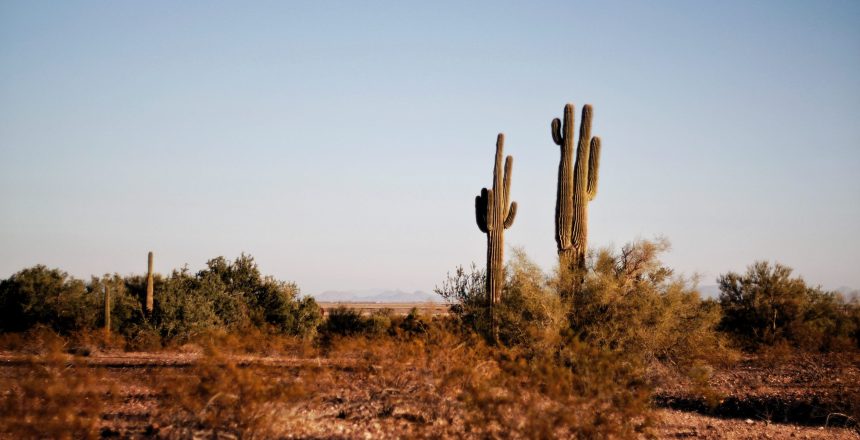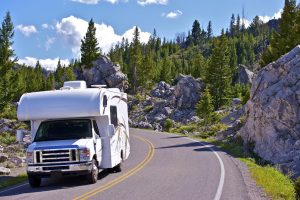Are you looking for a new place to live? Then, Arizona is the place to be. This state is known for its stunning landscapes and unforgettable sunsets, and it is home to some of the world’s most breathtaking natural wonders.
Arizona’s natural beauty is unparalleled, from the iconic Grand Canyon to the towering saguaro cactus. So it’s no surprise that, with its low crime rate and thriving job market, Arizona has become one of the most popular states to relocate to in recent years.
This guide will give you all the information you need to make an informed decision about moving to the Grand Canyon state.
Key Takeaways
- Arizona has consistently been ranked as one of the nation’s fastest-growing states.
- Arizona has a thriving economy with numerous job opportunities in various industries.
- Arizona is a very inexpensive state to live in.
- Arizona is well-known for many things, including the Grand Canyon, copper mining, and national monuments.
Table of Contents
Moving to Arizona
Arizona is well-known for its breathtaking scenery and sunsets. In addition, this southwestern state has 22 national parks and monuments, making it a popular destination for millions of visitors worldwide. Arizona has consistently been ranked as one of the fastest-growing states in the country, attracting a steady influx of people due to its thriving job market, affordable housing, and low crime rate.
The absence of natural disasters such as hurricanes, tornadoes, and earthquakes are one of the benefits of living in Arizona. Furthermore, the state’s low average rainfall makes it an excellent choice for those who prefer a dry climate.
What’s the Population of Arizona?
According to the United States Census Bureau, the estimated population of Arizona as of 2021 is approximately 7.4 million people.
Table 1: Age and Sex
Category | Value |
| Persons under 5 years | 5.50% |
| Persons under 18 years | 22.20% |
| Persons 65 years and over | 18.30% |
| Female persons | 50.10% |
Table 2: Race and Hispanic Origin
Category | Value |
| White alone | 82.00% |
| Black or African American alone | 5.40% |
| American Indian and Alaska Native alone | 5.30% |
| Asian alone | 3.80% |
| Native Hawaiian and Other Pacific Islander alone | 0.30% |
| Two or More Races | 3.10% |
| Hispanic or Latino | 32.30% |
| White alone, not Hispanic or Latino | 53.20% |
Table 3: Population Characteristics
Category | Value |
| Veterans, 2017-2021 | 471,924 |
| Foreign-born persons, 2017-2021 | 13.00% |
What is the Climate of Arizona Like?
Arizona is frequently associated with hot and dry weather, but the climate varies across the state. While some areas have over 300 sunny days per year on average, there are also areas with cooler temperatures and snow during winter.
Summer activities in Central Arizona often revolve around water, with people enjoying lakes and pools, whereas Northern Arizona offers outdoor activities and great skiing in the winter. Meanwhile, the weather in the state’s central and southern regions is frequently mild, allowing for outdoor activities in shorts or t-shirts.
What is the Average Commute Time in Arizona?
In Arizona, the average commute time is about 25 minutes. This, however, varies depending on where you live and work within the state. For example, the average commute time in more urban areas, such as Phoenix and Tucson, may be longer due to heavier traffic, whereas it may be shorter in rural areas. Additionally, commute time can be influenced by the mode of transportation, with those who drive typically having longer commute times than those who use public transport or walk/bike to work.
Economy and Job Market in Arizona
Arizona has a thriving economy with numerous job opportunities in various industries. In addition, the state’s unemployment rate is currently around 3.3%, making it a more appealing place to work than neighboring states like Nevada at 4.4% and California at 3.9%.
Depending on your career goals, Phoenix may be an excellent place to work in real estate or financial services, whereas Scottsdale may be better suited for jobs in the tourism industry. Those interested in the aerospace and defence industries should consider visiting Tucson, one of the country’s top five.
Aside from these industries, Arizona’s copper industry is thriving, accounting for up to 65% of total copper production in the United States. With tech behemoths like Intel and Taiwan Semiconductor Manufacturing Company constructing new factories in Arizona, the state is poised for even more growth and opportunity, with these new facilities set to be fully operational by 2024.
Major Industries and Employers in Arizona
The service industry, which includes government, trade, transportation, utilities, education, healthcare, business services, financial services, hospitality, and leisure, is vital to Arizona’s economy. The government is the state’s largest employer, with private employers including Banner Health, Walmart, Kroger, and McDonald’s.
The manufacturing industry is also a significant contributor to Arizona’s economy. High-tech manufacturers like Microchip, Intel, Raytheon, Honeywell, and JDA Software contribute significantly to Arizona’s economy by producing computer and electronic components, aerospace and transportation equipment, food and beverage products, machinery, motor vehicles, primary metals, chemicals, and non-metallic mineral products.
Arizona’s agricultural sector produces lettuce, cotton, cantaloupes, citrus, potatoes, cattle, hogs, sheep, poultry, and eggs. Copper is an essential mineral mined in Arizona, accounting for 60% of total US copper production, and the state is the world’s sixth largest producer of copper. In addition, gold, silver, molybdenum, gravel, uranium, zinc, mercury, tungsten, lime, coal, oil, and potash are other minerals mined in Arizona.
What’s the Expected Salary For Employment in Arizona?
Although finding work in Arizona is relatively easy, it’s essential to understand the average salary. So let’s look at some statistics to shed some light on the situation. Arizona’s median household income is $56,213, while the average is $77,221. Furthermore, the per capita income in Arizona is $29,265. So, again, 5.3% of Arizona households have a high income, earning more than $200,000 per year.
A person in Arizona typically earns around $106,000 per year, which enables them to live comfortably. Salaries range from $26,700 (lowest average) to $471,000 (highest average, the maximum salary is higher).
Cost of Living in Arizona
Arizona is a very inexpensive state to live in. Despite a growing economy and decent salaries, its cost of living is much lower than in many other states. Housing can be rented or purchased at reasonable prices, and other state expenses are also reasonable.
Housing Costs in Arizona
Housing in Arizona can be affordable, with average monthly costs ranging from $973 to $2,169. According to census data from 2021, Arizona has over 3 million housing units, so finding a home within your budget shouldn’t be too difficult. According to Zillow, the average home value in Arizona in March 2023 was $405,983.
The amount you spend on monthly housing will differ depending on whether you rent or buy. But, according to the most recent census data, here’s what you can expect to spend.
- Median monthly mortgage cost: $1,545
- Median studio rent: $973
- Median one-bedroom rent: $1,047
- Median two-bedroom rent: $1,251
- Median three-bedroom rent: $1,478
- Median four-bedroom rent: $1,688
- Median five-bedroom (or more) rent: $2,169
- Median gross rent: $1,253
Typical home values vary based on the city you choose to live in. Here are the average home values for some major cities in Arizona, as of January 2023, according to Zillow:
Arizona City | Typical Home Price |
| Phoenix | $433,926 |
| Tucson | $329,406 |
| Yuma | $256,507 |
| Lake Havasu City | $340,211 |
| Flagstaff | $560,197 |
| Sierra Vista | $230,699 |
| Show Low | $352,093 |
| Payson | $349,093 |
| Nogales | $248,482 |
| Safford | $243,931 |
Transportation Costs in Arizona
Here are some critical points on transportation costs in Arizona:
- The average cost of gas in Arizona ranges from $4.27 to $4.67 per gallon, which is slightly higher than the national average.
- Arizona has a relatively low car insurance rate compared to other states, with an average cost of $1,284 annually.
- The cost of vehicle registration in Arizona is based on a few factors, including the age of the vehicle and its value.
- Public transportation is available in many parts of Arizona, including bus and light rail systems in Phoenix and Tucson. The cost of public transportation varies depending on the location and the type of service.
- The average commute time in Arizona is around 25 minutes, slightly shorter than the national average of 27 minutes.
Overall, Arizona’s transportation cost is relatively affordable compared to other states but can vary depending on individual factors such as car ownership, commuting distance, and use of public transport.
Education in Arizona
Arizona’s education system is diverse, with public, private, charter, and homeschooling options. The Arizona Department of Education and the State Board of Education oversee public schools in the state. The state uses the Arizona Education Learning and Accountability System (AELAS)ELAS), which the state uses to distribute funds to public schools based on student enrol.
Tuition and fees at Arizona’s public universities vary depending on the school and program, but in-state students typically pay less than out-of-state students. Conversely, tuition at Arizona’s private colleges and universities is generally higher than at public universities.
Overall, Arizona has a diverse and accessible education system that provides students of all levels with various options.
Top-rated Schools and Universities in Arizona
This is a list of 25 universities in Arizona ranked based on their reputation, research performance, and alumni impact. The list was created by processing 12 million citations received by 253,000 publications made by the universities, measuring the popularity of 873 recognized alums, and utilizing the largest available links database to account for non-academic prominence. The universities are ranked as follows:
- University of Arizona, Tucson
- Arizona State University – Tempe
- Northern Arizona University, Flagstaff
- University of Phoenix – Arizona, Tempe
- Midwestern University – Glendale
- Grand Canyon University, Phoenix
- Prescott College, Prescott
- Southwest College of Naturopathic Medicine & Health Sciences, Tempe
- School of Architecture at Taliesin, Scottsdale
- Dine College, Tsaile
- Southwest University of Visual Arts – Tucson
- University of Advancing Technology, Tempe
- Thunderbird School of Global Management, Glendale
Healthcare in Arizona
Arizona has 144 hospitals, with 23 government and 40 private hospitals.
The total number of beds available in Arizona is 15,452. The largest hospital in Arizona is BANNER – UNIVERSITY MEDICAL CENTER PHOENIX CAMPUS, which has 640 beds in Phoenix, and the smallest hospital has 12 beds in Scottsdale.
In Arizona, 94 hospitals have helipads.
Arizona has 1,181,000 Medicare enrollees, with an enrolment-to-population ratio of 16.47%, slightly lower than the national average of 17.08%. Arizona’s average payment per fee-for-service enrollee is $8,997, compared to the national average of $9,857. The average hospital stay in Arizona is five days, the same as the national average.
Hospitals and Clinics in Arizona
- Arizona Health Sciences Center (University Medical Center) – Arizona
- Arizona Memorial – Phoenix, Arizona
- Banner Hospital – Avondale, Arizona
- Banner Health Arizona – Phoenix, Arizona
- Benson Hospital – Benson, Arizona
- Casa Grande Regional Medical Center – Casa Grande, Arizona
- Children’s Hospital – Phoenix, AZ
- El Dorado Hospital – Tucson, Arizona
- Havasu Regional Medical Center – Lake Havasu, Arizona
- Healthsouth Rehabilitation Hospital of Southern Arizona – Tucson, Arizona
- John C. Lincoln Health Network – Phoenix, Arizona
- Kingman Regional Medical Center – Kingman, Arizona
- LaPaz Regional Hospital – Parker, Arizona
- Maricopa Medical Center – Phoenix, Arizona
- Mayo Clinic, Scottsdale – Scottsdale, Arizona
- Northern Arizona Healthcare (Northern Arizona, Flagstaff, Sedona, Cottonwood)
- North Phoenix Heart Center Cardiology Group of Arizona – Phoenix, AZ
- Northwest Medical Center – Tucson, Arizona
- Paradise Valley Hospital – Phoenix, Arizona
- Phoenix Baptist Hospital & Medical Center – Phoenix, Arizona
- Phoenix Baptist Hospital and Arrowhead Community Hospital – Phoenix, AZ
- Phoenix Children’s Hospital – Phoenix, Arizona
- Phoenix Memorial Hospital – Phoenix, Arizona
- Scottsdale Memorial Health System – Scottsdale, Arizona
- Sierra Tucson – Tucson, Arizona
- Southern Arizona VA Health Care System – Tucson, Arizona
- St. Joseph’s Hospital and Medical Center – Phoenix, Arizona
- St. Marys – Tucson, Arizona
- Sun Health – Sun City, Arizona
- Tucson Medical Center – Tucson, Arizona
- Valley Lutheran – Mesa, Arizona
- Yavapai Regional Medical Center – Prescott, Arizona
- Yuma Regional Medical Center – Yuma, Arizona
Health Insurance Options in Arizona
Health insurance plans in Arizona include HMOs, EPOs, PPOs, point-of-service plans, and short-term and catastrophic plans. If you qualify for Medicare, you can look into your options further. Individual and family plans are available in various tiers, including platinum, gold, silver, and bronze.
Because more expensive plans have lower deductibles and copays, investing in a higher-tier plan may be beneficial if you need to see a healthcare provider frequently. Platinum plans are ideal for people with chronic illnesses or requiring frequent medical attention.
Best Cities to Live in Arizona
Tucson
Tucson, Arizona, is the state’s second most populous city, with a rich culture and exciting neighborhoods spread throughout. It has several museums, including the Arizona-Sonora Desert Museum, the Tucson Museum of Art, and the Pima Air & Space Museum, as well as historic neighborhoods with various activities and cultural experiences.
Tucson was also named a top hipster city due to its abundance of trendy establishments such as vegan cafes, microbreweries, and thrift stores, making it an ideal location for those seeking an alternative lifestyle. Furthermore, for those looking to get away from the city, Tucson is surrounded by beautiful natural landscapes, including the well-known Saguaro National Park, which is only a short drive from downtown.
Mesa
Mesa began as a small Phoenix suburb, but it has grown to become the largest suburb in the United States, with a population of 504,000. The community is about 20-30 minutes from downtown Phoenix and has become a tourist destination in its own right, with attractions such as the Arizona Museum of Natural History, Mesa Arts Center, and Hohokam Stadium, which serves as the Oakland Athletics spring training home.
Furthermore, Mesa is known for being one of the region’s most cost-effective suburbs, with housing costs that are only 1% higher than the state average.
Chandler
Chandler, a thriving Phoenix suburb, is only a half-hour drive from downtown Phoenix. Nonetheless, with a well-established community, an active downtown, and plenty of job opportunities, it has emerged as a desirable place to live independently. In addition, because of its highly educated population, many large corporations have chosen Chandler as their headquarters, resulting in higher incomes for residents.
Furthermore, Chandler is still relatively inexpensive compared to the neighboring city of Scottsdale. As a result, Chandler, one of Phoenix’s oldest suburbs, is an excellent place to live for people of all ages, from young professionals to retirees.
Scottsdale
Scottsdale, part of the Phoenix metropolitan area, has evolved into a different city with its own identity. It is known as “The Beverly Hills of the Desert”. It is one of Arizona’s most sophisticated communities, with a diverse selection of high-end dining establishments and luxurious resorts and spas for visitors.
Furthermore, the “Arts District,” a neighborhood devoted to the arts, includes attractions such as the Scottsdale Museum of Contemporary Art and an abundance of art galleries showcasing local pieces, making it one of Arizona’s most cultured neighborhoods.
Tempe
Tempe is well-known as a college town, home to Arizona State University, one of the largest universities in the United States. The energetic and vibrant environment is mainly due to the influx of over 50,000 students each semester, creating a fantastic nightlife scene in Arizona and making it an ideal and trendy place for students and young professionals.
Despite being a bustling city with a youthful vibe, Tempe offers various entertainment options for people of all ages, including live music emanating from bars and venues, year-round theatre performances, and galleries showcasing some of the best local talents.
Glendale
This Arizona suburb is regarded as one of the best places to live. Glendale attracts many sports fans yearly, thanks to the Arizona Cardinals and State Farm Stadium. People are drawn to sports for a variety of reasons. In addition, Glendale is a thriving community known for its shopping district.
Downtown Glendale is known as “Arizona’s Antique Capital,” It is home to many thrift stores, including Zola Bell’s Vintage Emporium and the Brass Armadillo. The city also serves as a focal point for community events such as the Glendale Glitters holiday light display and the Glendale Chocolate Affaire.
Paradise Valley
Paradise Valley, Arizona, is a wealthy suburb that lives up to its name by being a true paradise. It is located in the Greater Phoenix metropolitan area. This city is picturesque and peaceful, with natural wonders like Echo Canyon, Phoenix Mountains Preserve, and Piestewa Peak Park, among others. Like its neighbor to the south, Paradise Valley, Scottsdale, is known for its plentiful residents and golf courses. Furthermore, the city is home to ten resorts and spas, offering plenty of opportunities for relaxation and luxury.
Phoenix
Phoenix, Arizona’s capital, is a thriving city with a growing population. It is culturally diverse and home to several communities. In addition, the city has a vibrant college scene and plenty of amenities. Given its status as a state capital with a thriving college scene, its vibrant nightlife is unavoidable.
Aside from cultural attractions such as the Phoenix Art Museum and the Heard Museum, outdoor destinations such as Camelback Mountain and the Sonoran Desert are popular tourist destinations. In addition, Phoenix is a relatively safe city with a low cost of living, excellent schools, and lovely weather, making it a popular place to relocate.
Thinking of moving to Caribbean Island? Read our article “Moving your Car to Puerto Rico” for more insights.
What are the Taxes Like in Arizona?
If you’re considering moving to Arizona, there are a few tax considerations to keep in mind. First, it’s critical to follow state tax laws, whether temporarily or permanently. When filing your taxes, you can take the standard deduction or itemise your deductions, and the standard deduction is adjusted for inflation each year.
There are some additional tax filing considerations to consider. For example, if you sold a home to relocate to Arizona, any gain from the sale would be excluded from Arizona’s gross income if it was excluded from federal adjusted gross income. Arizona is also a community property state, which means that all property acquired by either spouse during the marriage, except gifts or inheritance, is considered community property.
Overall, staying informed about Arizona’s tax laws is critical to ensure compliance and avoid any unpleasant surprises come tax time.
Challenges of Living in Arizona
Living in Arizona poses a variety of challenges. Because public transportation is limited and walking to work is not an option due to a lack of pedestrian-friendly areas, transport is essential. Moreover, the state’s natural landscape is dominated by barren deserts, with few green areas or trees. Summer temperatures can reach over 100 degrees Fahrenheit, which can be oppressive.
Because the state’s economy relies heavily on real estate and construction, job opportunities are limited, and salaries may fall short of expectations. In addition, conservative political views predominate, and neighborhoods have a growing lack of diversity.
Many families choose to spend the winter in Arizona, resulting in an increase in tourism that can cause overcrowding in restaurants and shopping centers. Finally, the southern part of the state does not have winter, which can be jarring for some residents.
Things to Do in Arizona
Here are some top things to do and visit in Arizona:
- Antelope Canyon is a spectacular slot canyon with orange sandstone and stunning light beams. You must first sign up for a guided tour to access the area.
- Saguaro National Park has a massive forest of saguaro cacti, some of which are 50 feet tall and have existed for over 200 years. During your visit, keep an eye out for coyotes and desert tortoises.
- Tombstone is an infamous Wild West town known for the legendary gunfight at the O.K. Corral. In 1881, the Corral was built. You can visit historic saloons and shops and watch a shootout reenactment.
- Drive Route 66 runs through Arizona, passing through cities such as Winslow and Flagstaff and Petrified Forest National Park. The longest and best-preserved stretch of the highway runs through Arizona, from Topock in the west to Lupton in the east.
- Taliesin West, a Frank Lloyd Wright masterpiece in Scottsdale, is a National Historic Landmark and a UNESCO World Heritage Site. You can tour the grounds and shop at the on-site store.
Monument Valley Navajo Tribal Park is known for its 1,000-foot-tall sandstone monoliths and is one of the most photographed places in the world. It is located on the border of Utah and Arizona.
What is Arizona Most Known For?
Arizona is well-known for many things, including the Grand Canyon, copper mining, and national monuments. The Arizona State Fair is among the five most popular fairs in the United States. Furthermore, Arizona is well-known for hosting the world’s oldest rodeo, which began in Prescott in 1888. The state also has many turquoise reserves and the most national monuments in the United States. In addition, Phoenix’s capital city is well-known for its botanical gardens and museums. Finally, the chimichanga, a popular Tex-Mex dish, originated in Arizona.
Things to Know About Moving to Colorado
How Much Money Do You Need to Live Comfortably in Arizona?
According to MIT, an individual living in Arizona must earn $31,077 per year to cover their expenses. So, for example, a family of four would require an annual income of at least $67,438; a family of five would require a yearly income of at least $75,152. However, you will need a much higher income if you want to live a more comfortable lifestyle and have enough money for long-term financial goals like retirement.
Duration Requirements to Attain Resident Status in Arizona
To be considered an Arizona resident, you must obtain a local driver’s license or reside in the state for seven months. You must also provide proof of residency through employment records, utility bills, and other Arizona proof of residency forms.
Safety in Arizona
Arizona is a low-risk destination, but visitors should do their homework and know about the desert climate and potentially dangerous plants and animals. In addition, visitors should be aware of busy hours and neighborhoods to avoid when using public transportation.
Thinking about moving to other states? Read our articles “Moving to Colorado” and “Moving to California” for valuable insights and guidance.
Making Your Move to Arizona
Here at Mercury Auto Transport, an auto transport company, we understand that moving to Arizona can be exciting and daunting. That is why we provide dependable auto transport services to make the process as simple as possible. Our experienced team is committed to providing safe and efficient transportation for your vehicle to and from Arizona.
We prioritize customer satisfaction and ensure that your vehicle arrives on time and in the same condition as when it was picked up. With our comprehensive services and competitive pricing, you can rely on us to handle your auto transport needs and make your move to Arizona a stress-free experience. So, if you’re planning a move to Arizona, get your free quote here and let us handle the rest.






